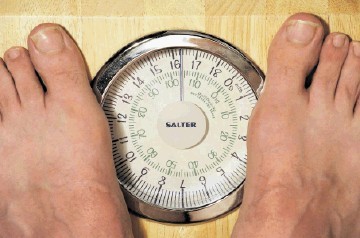
Being overweight can have a severe effect on one’s health.
Obesity is linked to a range of health problems which include heart disease, high blood pressure, diabetes, snoring and some cancers.
For those in oil and gas, it may also prevent you from being considered fit to work offshore for safety-related reasons. If you have become distinctly overweight this will be a problem when you next have an OGUK Offshore Medical.
Oil & Gas UK has set guidelines relating to BMI (Body Mass Index) measurements to ensure that offshore workers are safe to work in an offshore environment.
Our BMI is a measurement of weight in relation to height and is determined using the following formula “BMI = (Weight in Kg)/(height in metres)”.
If you just type “BMI” on an internet search you will find several free sites where you can enter your measurements and your BMI is instantly calculated for you.
Safety issues for an offshore worker who is obese could arise during an offshore emergency. He could find it harder to escape from a restricted space such as a ditched helicopter.
Also, a heavy casualty on a stretcher is bound to be more difficult to carry and more people will be needed to carry the individual to safety.
Offshore workers often perform strenuous tasks in the harsh environment of the North Sea where it’s cold and wet, so it’s not surprising that at the end of a hard shift they want to eat something that’s warm and comforting.
But too many pies and puddings can soon pile on the weight but installations now provide a wide range of healthy food options.
Why not start to view those carb-rich pies and puddings as a special treat only to be eaten occasionally?
Some offshore work is extremely physical whilst other tasks can involve sitting for long periods.
Whilst you are offshore take advantage of the gym facilities available. Remember that you will need to complete a gym induction and declaration form before you start using these facilities.
Regular physical activity not only helps to maintain a healthy weight but keeps you strong and mobile and can even help with the management of stress and anxiety.
Alcohol is high in sugar and can also contribute to weight gain especially if you decide to make up for lost time when you are back onshore.
It is easy to put on weight when you are socialising ashore, enjoying drinks, snacks and then a meal. It’s interesting to track the alcohol-related calories you’ve consumed using the calculator available on line with MyDrinkaware – see www.drinkaware.co.uk.
Women tend to be more attentive to their eating habits and know more about the calorific and nutritional content of their diets. Having concerns about one’s weight used to be seen as a female preoccupation but these days a whole new mindset is necessary. The offshore working population is mainly made up of men and they too need to make maintaining a healthy weight a lifestyle priority.
Once a person decides they are going to take measures to control their weight, there is the question of which diet to adopt. Should you just cut down the amounts you eat or perhaps count the calories of everything you consume?
Is a high-protein, low-carbohydrate diet a good option? What about a low-glycemic diet or a high fibre diet?
No wonder we get confused with such a plethora of seemingly complicated diet plans on offer and we haven’t even touched on the many fad diets such as those that recommend eating nothing but cabbage soup or grapefruit.
Unnatural diet regimes that don’t feature all the food groups we need for a balanced diet are bound to be unsuccessful long-term.
Eating healthily and taking part in regular physical activity leads to gradual and long-lasting weight loss. If you need more information about what makes up a balanced diet, then you could start by speaking to the medic on your installation and get some informed advice.
These days there are reputable commercial companies providing weight loss programmes in a format that appeal to men. You can even stay on track by using interactive weight loss tools on your Android, iPhone or smartphone.
Advice on food ideas and exercise particularly tailored to men’s needs are available wherever you are. Some of our well-known supermarkets also provide online healthy weight loss plans designed specifically for men.
Whether you are male or female, being aware and proactive about your weight and health makes good sense. As well as helping to prevent heart disease and strokes, keeping trim will also help to prolong our working lives.
Cheryl Carroll is occupational health and medical governance manager at Abermed